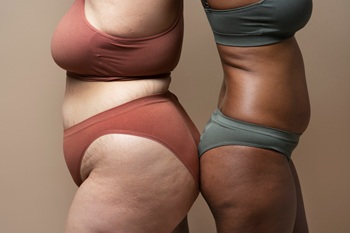Supplements Every Woman Should not Live Without
To maintain good health, everybody needs a specific quantity of nourishment daily. This can be achieved by eating a healthy, balanced diet to provide the nutrients the body needs to function efficiently. Everyone must consume a required number of macronutrients and micronutrients daily to satisfy the nutritional checklist. This article explores the essential nutrients women should include in their diet.
Everything about Nutrition
The body needs nutrients to function optimally. These include proteins, carbohydrates, and fats, the macronutrients consumed in large quantities. Vitamins and minerals are the micronutrients consumed in smaller quantities but have a significant impact on health during critical conditions. Micronutrients are abundant in fruits, vegetables, nuts, dairy products, eggs, meat, and fish.
However, supplements can fill in any deficits in nutrients if one;
- Is unable to consume certain food items
- Adhere to a strict diet
- Have a reported nutrient deficiency
- Have higher nutrient requirements
- experiences a decline in food intake as age escalates, causing less absorption of nutrients.
- Have underlying medical problems that restrict your ability to absorb nutrients.
Supplements might be beneficial to address women's enhanced nutritional needs during specific life stages, like when attempting to conceive, when pregnant, or when breastfeeding.
Remember, the best strategy to establish supplement requirements is to discuss with a healthcare professional or a dietitian to detect nutrient deficiencies and ascertain whether dietary modifications or supplements can benefit your body.
6 Essential Supplements to Consider
Women must regularly consume the necessary supplements to maintain a healthy functioning system. The essential supplements that every woman should consider are as follows (1):
Iron: Hemoglobin Generator
Iron is an essential mineral that helps in the production of hemoglobin. Hemoglobin is the protein in red blood cells that contains about 70 percent of the iron in your body. The red blood cells shuttle oxygen from the lungs to the other parts of the body including the muscles and tissues (2). Furthermore, a healthy immune system requires adequate iron to boost the immune cells. Other vital proteins contain 6 percent iron, and your body reserves another 25 percent of it in a blood protein called ferritin.
Iron must be obtained through diet as it is not produced by the body. Therefore, eating iron-rich food is highly important. Some Iron-rich foods include:
- Chicken
- Liver
- Pork
- Shrimp
- Egg yolk
- Broccoli
- Green peas
- Iron-fortified cereal
- Dates
- Dry fruits such as apricots and raisins
- Spinach
- Dark chocolate
Iron deficiency or anemia can occur when you consume less iron than is required. When your hemoglobin level is normal but your iron level declines, you may have iron deficiency. Anemia occurs when your hemoglobin and iron levels gradually decrease due to heavy menstrual periods and chemotherapy. This can cause complete body weakness, resulting in severe health problems. Subsequently, pregnant women are also the fetus's source of iron, and iron deficiency anemia is common among them (3).
Vitamin C-rich foods like citrus fruits, melons, and tomatoes help in dietary iron absorption. Iron supplements can be consumed to improve your iron levels. But they must not be taken without professional advice.
The National Institute of Health (NHIS) recommends the following iron consumption from foods and supplements (4):
- 8 mg daily for women over the age of 50
- Women aged 50 and under should take 18 mg each day
- Pregnant women should take 27 mg per day
- 13.7-16.3 mg daily for children and adolescents aged 2 to 19.
Consuming more than 45 mg of iron per day may result in intoxication symptoms.
Calcium: Bone Supporter
Calcium is the most abundant mineral present in your body. Humans require calcium to grow and maintain healthy and strong bones. The bones and teeth are the body's 99 percent trusted source of calcium. It is also required for maintaining proper communication between the brain and the rest of the body. It helps with muscle mobility and cardiovascular function.
Calcium comes naturally in many foods and is added to some items by food makers. Calcium-rich foods include (5):
- Sweet potato
- Soybeans
- Sardine
- Fortified cereal
- Fortified orange juice
- Yogurt
- Chia seeds
- Dairy milk
- Okra
There are other supplements available that could be used as a substitute for calcium-rich food.
When your body lacks calcium, you are more likely to develop disorders such as osteoporosis, osteoarthritis, osteopenia, and calcium deficiency, also known as hypocalcemia (6). This can cause severe bone weakness, which is more common in females since they have lower bone density than males. A doctor may advise you to take extra calcium if:
- Menopause has started
- Menstruation stopped due to anorexia nervosa or extreme activity
- Lactose intolerant
- pregnant or breastfeeding
- Adaption of a vegan diet.
According to the Office of Dietary Supplements (ODS), people require the following quantities of calcium:
- 1,000 mg for women aged 19 to 50
- 1,200 mg for women aged 51 and above (menopausal women)
- Women who are pregnant or breastfeeding require 1,000-1,300 mg per day, which depends on their age.
Similar Read;
Magnesium: Body Controller
Magnesium is a vital mineral that the body requires to function efficiently. It is one of the most prevalent minerals in the body to regulate numerous metabolic activities. It is also necessary for building strong bones, regulation of cardiac rhythm and blood glucose levels, as well as for immune support and nerve function.
Around 60 percent of magnesium is stored in the skeletal system. The remaining is used in soft tissue cells such as the liver, muscles, heart, and kidneys, as well as the fluid within these cells known as the intracellular fluid. Magnesium's role thrives within this fluid, where it participates in over 300 metabolic events with significant responsibilities.
Green leafy veggies contain magnesium. Magnesium is abundant in other natural sources like pumpkin seeds, avocados, salmon, almonds, bananas, soybeans, and poultry.
Magnesium deficiency is rare, while many young women are experiencing low magnesium, especially in the UK. This may be due to food and lifestyle choices. Magnesium deficiency causes fatigue, mental health problems (mood disorders), high blood pressure, and asthma.
Women require 270 mg daily, and breastfeeding mothers an additional 50 mg. That's roughly equivalent to 30 g of pumpkin seeds, an avocado, a banana, or an 80 g serving of spinach (7, 8).
Vitamin D: Sunshine Vitamin
Vitamin D is considered a hormone rather than a vitamin. It is a fat-soluble vitamin that can control the body's calcium and phosphate levels. It is essential for fighting diseases or the spread of infections, providing bone strength, regulating mood, declining the growth of tumor cells, and reducing depression in your body.
When your skin is exposed to sunshine, it generates vitamin D. Vitamin D can also be obtained through a few specific sources such as sunshine, raw milk, egg yolks, cod liver oil, orange juice fortified with vitamin D, and tuna. However, supplements are a better alternative when vitamin D cannot be obtained from natural sources due to their habitual environment (9, 10).
A deficiency of vitamin D can induce bone disorders in children, such as rickets, and bone pain in adults, known as osteomalacia. Individuals with deficient vitamin D levels are more prone to develop type II diabetes mellitus and an increased risk of cardiac arrest or stroke.
Adults and children over one year require 10 micrograms of vitamin D daily. This applies to pregnant and breastfeeding women, as well as those at risk of vitamin D deficiency.
Similar Read;
Fish-Oil: Omega-3 - Shield for your heart
Omega-3 fatty acids, which are healthy for the heart and brain, are abundant in fish oil and are not produced naturally by the body. It is one of the best supplements that help lower heart diseases and improve brain function. It also aids in reducing inflammation and supports eye health.
Fish is the healthiest source of Omega-3s. Fish oil supplements are the most popular dietary supplements since they are a good alternative for people who don't eat fish. Natural sources of these fatty acids are salmon and sardine, shrimp, linseed oil, English walnuts, tofu, and broccoli.
Insufficient intake of omega-3 fatty acids is called an omega-3 deficiency, which can cause irritation and dryness in the skin and eyes. It can also cause joint pains, rheumatoid arthritis, stiffness, depression, and hair changes.
The total Omega-3 that women can consume is 1100 mg per day, while men can consume 1600 mg per day. Fish oil dosages of up to 3000 mg daily are acceptable (11, 12).
Folate: Producer of Blood cells
Folate (Folic Acid) is a type of Vitamin B (B9) that helps in DNA production and its repair. It is a producer of red blood cells as well.
Green leafy veggies, sunflower seeds, whole grains, eggs, and citrus fruits are good sources of folic acid.
Lack of folate causes folate deficiency, which causes anemia, fatigue, mouth sores, etc. Folate is crucial for those who have uteruses that are ready to bear children. During pregnancy, folate deficiency can result in abnormal births.
Every human should include 400 micrograms of folic acid in their daily diet. Adult women who are contemplating pregnancy or who become pregnant should take 400 to 1,000 mcg of folic acid daily to ensure the birthing of healthy babies.
Supplements Intake Guide
A study that involved around 15,000 people reported that women between the reproductive ages of 19 and 50 are particularly at risk for nutrient deficiencies, especially B6 and vitamin D deficiencies. So, consuming supplements is an alternative to prevent such deficiencies or disorders when the nutrition is not enough for the body through the food you consume daily.
Supplements are available in different forms in the market. They come in tablets, liquids, and chewable. Check out these recommendations before you purchase any. But it’s always advised that you consult a doctor before you start taking supplements.
- The most prevalent iron supplements are ferrous and ferric iron salts, which include ferric sulfate, ferrous gluconate, ferric citrate, and ferrous sulfate.
- The commonly advised calcium supplements include calcium citrate, calcium carbonate, and calcium phosphate, calcium lactate.
- Magnesium tablets, magnesium sprays, and magnesium drinks are possible magnesium supplements to use alternatively. Magnesium bath salts are also recommended as they can help by getting absorbed via the skin.
- There are two types of Vitamin D supplements: Vitamin D2 (ergocalciferol) and Vitamin D3 (cholecalciferol). Vitamin D levels in the blood can be increased by both. However, vitamin D3 may be preferable to vitamin D2 because it can increase vitamin D levels quickly and for a longer period. Vitamin D2 & D3 tablets can be consumed based on the doctor’s advice.
- Follow the directions on the label for fish oil omega 3 capsules precisely, or use them as your doctor has advised. Use as directed; don't use more, less, or for an extended period. Completely swallow the fish oil tablet. Avoid opening or puncturing the capsule. Fish oil performs best when taken with food.
- The folate supplements will mainly consist of folate RDA and methyl-folate elements. It mostly comes in capsules only. Overdose of folic acid intake can mask the Vitamin B12 deficiency leading to serious health problems.
Understanding Women's Unique Nutritional Needs
Throughout the lifetime, there are significant physiologic, neurologic, and hormonal variations that influence the nutritional requirements in women's health. It is influenced by various factors like hormonal fluctuations, age, reproductive status, heredity, genetics, and also their lifestyle (13, 14).
Females often have less muscle mass and a higher body fat percentage than males. They may require fewer calories overall but a higher concentration of specific micronutrients such as calcium and iron. Additionally, women's unique nutritional requirements differ during lactation, pregnancy, and adolescence.
The micronutrients are one of the most vital inclusions that women must consider incorporating in their diets to maintain general health– and possibly aid in preventing specific illnesses– to meet their unique nutritional needs. These include crucial nutrients like vitamin D, calcium, folate, iron, protein, fiber, and omega-3 fatty acids.
Both men and women have similar demands for macronutrients such as carbohydrates, protein, and good fats. The precise quantities and proportions of macronutrients required daily depend on various characteristics like the composition of the body, age, and degree of physical activity that one performs.
Women must consume a diet that is well-balanced and fits their unique nutritional needs. To find the precise one based on circumstances, speaking with a certified dietician or healthcare professional can be helpful.
Lifestyle to Improve Nutritional Status
Women may benefit from monitoring their general dietary habits and lifestyle choices, which can impact their health in addition to these particular nutrients. To enhance your nutritional status and overall well-being, consider the following beneficial lifestyle approaches.
Consume Natural Nutritious Foods
Most doctors and dieticians agree that eating home-cooked meals prepared from organically grown ingredients can significantly improve your health. The foundation of having a healthy body is eating a balanced diet that contains a variety of proteins, carbs, fats, whole grains, fruits, and veggies. Avoiding food with excessive sugar and processed foods can significantly enhance your health and help prevent many health problems. When you adhere to such a diet routinely, you can notice tangible changes in your physical and mental state.
Hydrate Frequently
Water consumption is another vital factor for maintaining a healthy body and mind. Drink at least 8 to 10 cups of water daily, and should increase if you are breastfeeding or participating in physical activity.
Similar Read;
Manage Stress and Be Physically Active
Stress affects your well-being, especially your mental health, which will directly or indirectly affect your entire bodily mechanisms. Yoga, exercise, meditation, and doing things that you fancy, like painting, dancing, and trekking, can help you reduce stress and will enable you to balance your personal and professional life.
Regular physical activity is needed to maintain a healthy weight and to prevent chronic diseases. Being overweight is a common reason behind the development of diseases in humans in this current generation. So, physical activity is a must.
Also Read;
Have Adequate Sleep
Every human requires a minimum of 7 hours of sleep every night. Lack of sleep can affect the body in unexpected ways that one wouldn’t imagine. Women, especially, do a lot of day-to-day tasks. So, it is a must for them to rest and have a sound sleep for the body cells to rejuvenate and become prepared for the next day.
Cons of Supplement Intake
Dietary supplements have their positive and negative effects, just like prescribed medications do. Although taking multivitamins is safe, there are certain risks involved. For optimal function, your body needs regular consumption of at least 13 vitamins and 16 minerals. This can be obtained through supplements. However, some common side effects include constipation, diarrhea, and nausea. It mainly affects the gut health, but it doesn’t always happen. It’s best to be aware of the side effects as well (15).
With the correct dosage, it is a safe option. But you must consult a healthcare professional when you start a regime or if you notice any bodily differences after the consumption.
Written By: Mithila Mohan (Global Health Professional)
Reviewed by: Nandini Elanchezian M. D.
Similar Read;
- Are Supplements Worth the Hype
- Can Supplements Improve Low Libido in Women
- Unlocking the Power of Supplements











Comments (0)